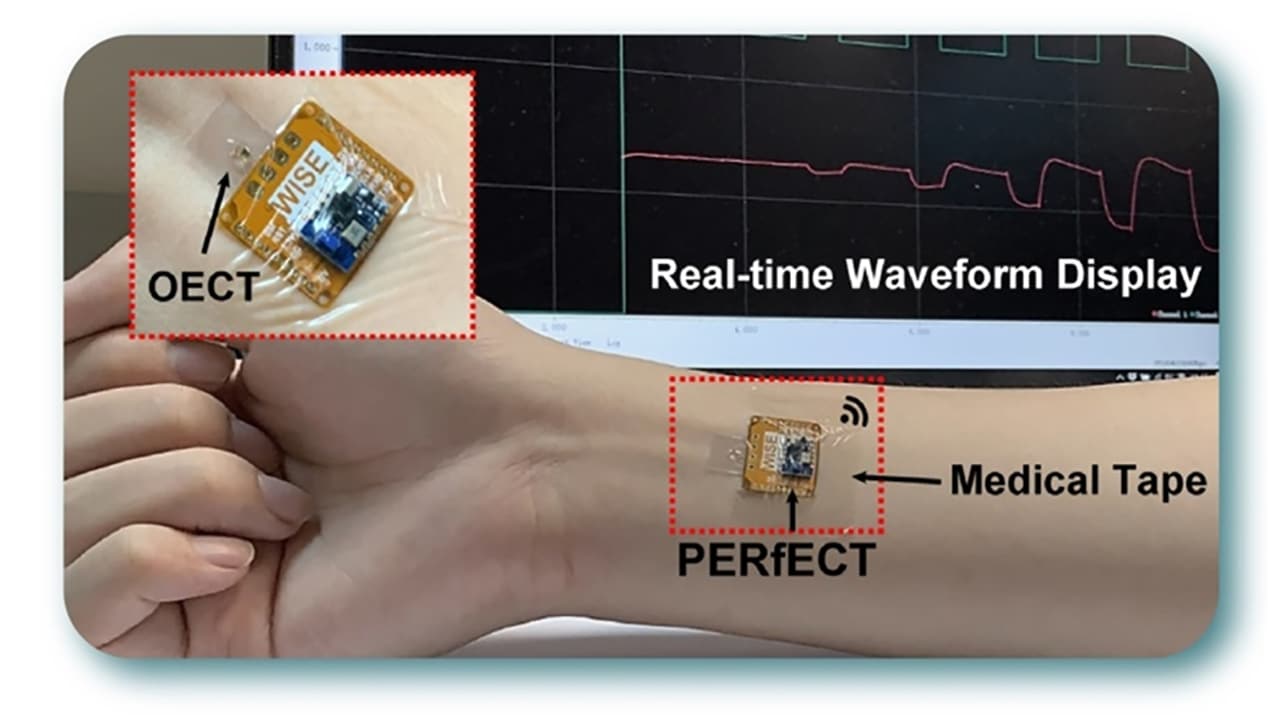
Organic electrochemical transistors (OECT) have emerged as a next-generation biosensing technology because of their water stability, cost-effectiveness, and ability to obtain high sensitivity at low operation voltage. However, a miniaturized readout unit that can wirelessly characterize the overall performance of an OECT is still missing. This hinders the assembling of truly wearable OECT systems for continuous health-monitoring applications.
Now, a team of researchers in the Faculty of Engineering of The University of Hong Kong (HKU) has developed a coin-sized system that can read weak electrochemical signals. These signals can be used for personalized health monitoring and measurement of such conditions as diabetes, cardiovascular diseases, and mental health.
The PERfECT (Personalised Electronic Reader for Electrochemical Transistors) System is the world’s smallest system of its kind, measuring 1.5 cm x 1.5 cm x 0.2 cm and weighing only 0.4 grams. It is easily wearable to allow for continuous monitoring of biosignals such as glucose levels and antibody concentrations in blood and even sweat.
“Our wearable system is tiny, soft, and imperceptible to wearers, and it can do continuous monitoring of our body condition. These features mean it has the potential to revolutionize healthcare technology,” said Dr. Shiming Zhang, who leads the HKU WISE (wearable, intelligent and soft electronics) Research Group to develop the system.
The PERfECT wearable system can precisely characterize the overall performance of the electrochemical transistor, with a data sampling rate as high as 200 kilosamples per second – a performance on par with the expensive and bulky commercial equipment. The system can also serve as a miniaturized electrochemical station for wearable devices and measure the outputs of other kinds of low-voltage transistors, such as electrolyte-gated field effect transistors and high-k dielectric-gated thin-film transistors.
The PERfECT system could be applied immediately in multiple wearable systems that are based on low-voltage transistors.
“We have been able to develop the PERfECT system because of the unique, interdisciplinary culture in the HKU WISE Research Group, which includes researchers from electrical engineering, applied chemistry, biomedical engineering, microelectronics, and software engineering. I have also made it a point to recruit young, promising undergraduate and postgraduate students to our team,” said Dr. Zhang, who formed a startup, SESIC, to make the technology accessible.
Coin-sized wearable biosensing device for digital health monitoring
Source: Tambay News

0 Comments